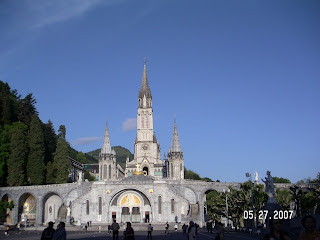christmas is not just a birthday: christmas B 2011

Tonight we are celebrating Christmas, so Merry Christmas. I just want to emphasize this point because starting this night, it is officially Christmas. I say officially because some of us have already started greeting each other Merry Christmas way back November, and even as early as September we have already begun putting up our Christmas Trees and lanterns. That was the unofficial Christmas, otherwise known as the Filipino Christmas. Today it is officially Christmas and we are celebrating it after almost all our Christmas parties are over. We are after all a people known for postponing our grief, and anticipating our joys. Tonight if the calculations in the Mayan Calendar proved true, this will be our last Christmas. Do you know that? So you are not watching National Geographic. December 21, 2012, the next winter solstice, will also be the last for it will be the day when the world ends. Yes you heard me right. The world as we know it will end next year, 4 days short o







































